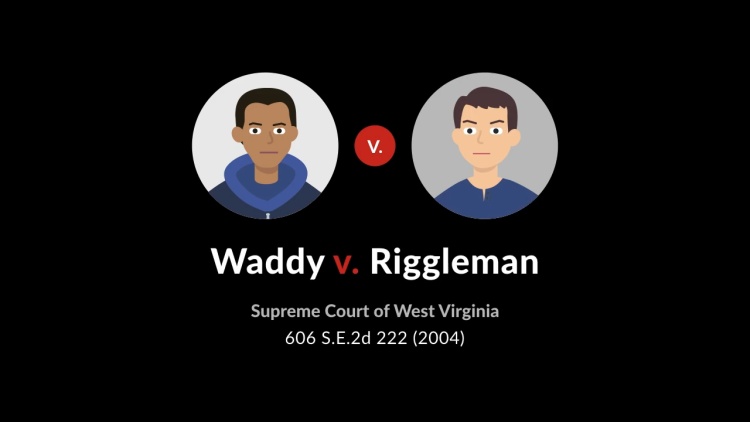Waddy v. Riggleman
Supreme Court of West Virginia
606 S.E.2d 222 (2004)
- Written by Craig Conway, LLM
Facts
William Waddy IV (plaintiff) entered into a contract to purchase a 30-acre tract of land from Denver Riggleman III and his wife (defendants) for $22,500, with closing to occur on or before a certain date over two months later. The agreement required the Rigglemans to convey title to the land free and clear of all liens and defects. An attorney, John Ours, prepared the land-sale contract and was charged with obtaining the relevant mortgage releases. Later, the parties amended the contract to add an additional 18 acres to the sale, and extended the closing date by 15 days. Ours failed to timely secure the two mortgage releases by the closing date. The Rigglemans backed out of the agreement. Waddy filed suit against the Rigglemans and two banks that held mortgages on the property subject to the sale. Subsequently, the Rigglemans sold 96 acres to C. Fred Ours and Carol Ours (defendants). The sale adversely affected the 48 acres sought by Waddy, and the Ours were added to the suit as defendants. After Waddy presented his case at a bench trial, the trial court granted the Rigglemans’ motion for a directed verdict and dismissed the complaint. The trial court concluded that that the transfer of the land was impossible and that time was of the essence in closing on the sale. Waddy appealed.
Rule of Law
Issue
Holding and Reasoning (Davis, J.)
What to do next…
Here's why 907,000 law students have relied on our case briefs:
- Written by law professors and practitioners, not other law students. 47,100 briefs, keyed to 996 casebooks. Top-notch customer support.
- The right amount of information, includes the facts, issues, rule of law, holding and reasoning, and any concurrences and dissents.
- Access in your classes, works on your mobile and tablet. Massive library of related video lessons and high quality multiple-choice questions.
- Easy to use, uniform format for every case brief. Written in plain English, not in legalese. Our briefs summarize and simplify; they don’t just repeat the court’s language.





